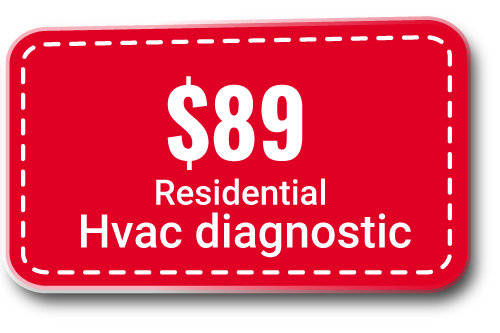Considering a new AC unit? This is a significant investment in your home’s comfort and energy efficiency. Knowing how much is a new AC unit is the first step in making an informed decision. The cost can vary widely, depending on several key factors, including the type of system, its size, and its efficiency rating.
The average cost for a new central air conditioner and installation for a 2,000-square-foot home is approximately $12,000 to $18,000. However, prices can range from $9,500 to $18,500 or more. In contrast, a ductless mini-split system might cost between $5,800 and $14,000.
Please note that these prices may vary considerably based on the complexity of the installation, the unit’s Seasonal Energy Efficiency Ratio (SEER), necessary ductwork modifications, and the specific equipment model. For a precise and personalized quote, we highly recommend you contact Mechanical Air directly.
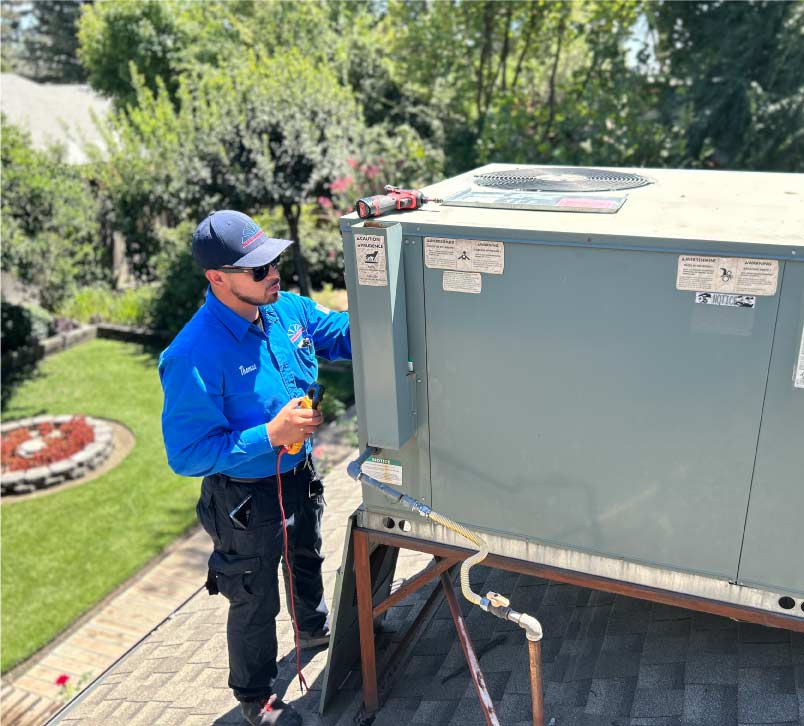
Factors That Affect Your Final Cost
The total price you pay is not just for the equipment. It also includes the labor and complexity of the installation. A proper assessment by a professional is crucial to ensure you get the right system for your home and budget.
1. Type of System
The air filter is your first line of defense against dust and debris. If you have a reusable filter, you can wash it with warm, soapy water. For a disposable filter, the best practice is to replace it entirely. A clean filter is vital for maintaining good airflow and a healthy system.
Different types of AC systems come with different price tags. Central air units are a popular choice for cooling an entire house. Ductless mini-splits are an excellent option for cooling specific rooms or additions. They are generally less expensive to install than a full-scale central system.
2. Unit Size and Cooling Capacity
The “size” of an AC unit refers to its cooling capacity, measured in British Thermal Units (BTUs). An undersized unit will struggle to cool your home, while an oversized one will cycle on and off frequently, reducing efficiency.
A professional will perform a Manual J load calculation to determine the correct size for your home. Knowing how much is a new AC unit in terms of size and BTU output is critical for both performance and cost.
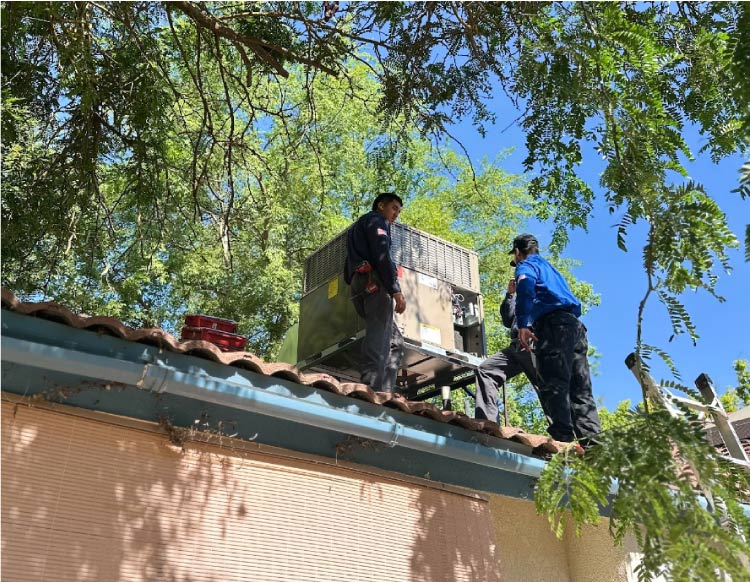
3. Seasonal Energy Efficiency Ratio (SEER)
The Seasonal Energy Efficiency Ratio (SEER) measures an AC unit’s efficiency. The higher the SEER rating, the more energy-efficient the unit, which can lead to lower monthly utility bills. Higher SEER ratings typically come with a higher upfront cost.
4. Brand and Features
The brand of the AC unit can significantly influence the price. Brands like Carrier and Trane may have different price ranges compared to others. Additional features like smart thermostats, noise reduction technology, and whole-house air purification can also increase the overall cost. This is another factor that impacts how much is a new AC unit.
5. Ductwork and Installation Complexity
The condition of your existing ductwork is a major factor. If you need significant ductwork repair or replacement, it can add thousands of dollars to the total project cost. Complex installations in older or historic homes may also require more labor, increasing the price. A high-quality installation is essential to ensure your new unit performs at its peak efficiency.
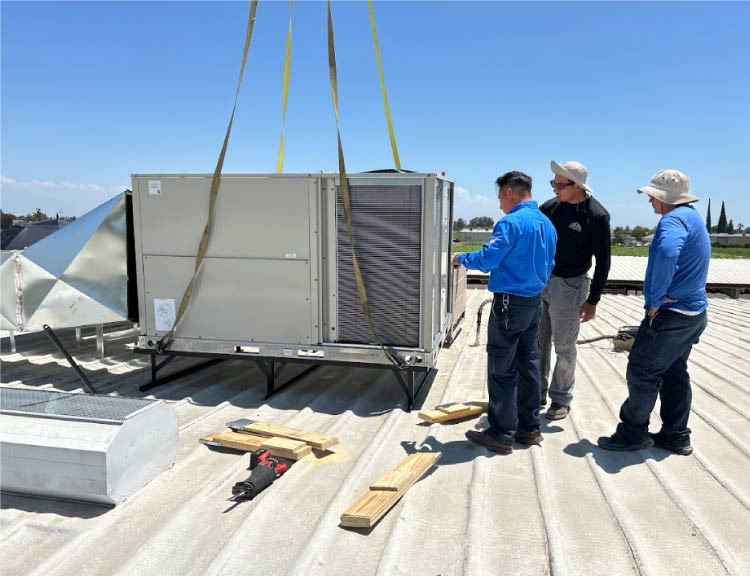
Choosing the Right System for You
When you are ready to choose your new AC unit, consider a few key factors. Assess your home’s size and cooling needs. Think about your long-term energy savings versus the initial purchase price. For help with this, you can contact an expert for a free new unit replacement estimate. This can give you a clearer picture of your specific costs.
Investing in a new, high-efficiency AC system can provide several benefits. These include improved indoor air quality, consistent temperature control, and a longer lifespan for your equipment.
Many modern units also operate more quietly than older models. If you are wondering how much is a new AC unit is that is also energy efficient, it is a smart question to ask.
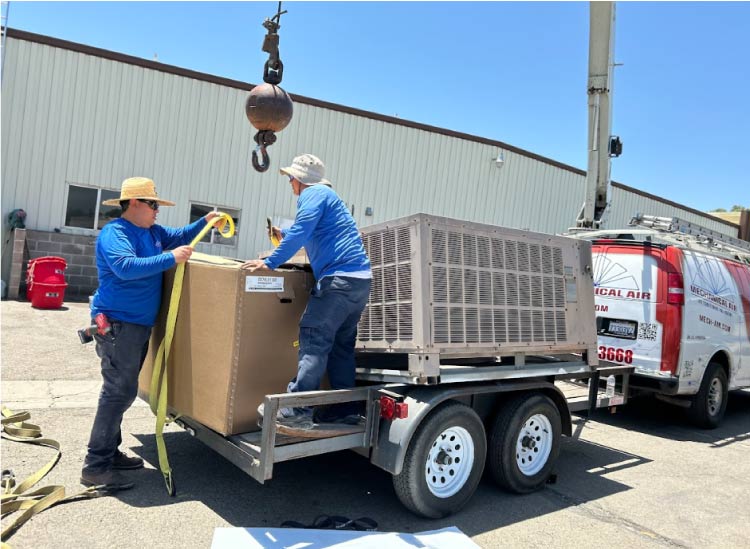
If you’re not sure whether you need a new unit, look for signs like inconsistent cooling, frequent breakdowns, or rising energy bills. Regular HVAC maintenance is vital for prolonging your system’s life and efficiency. You can learn more about how to keep your system running smoothly by scheduling an AC service with a professional.
Why Choose Mechanical Air?
At Mechanical Air, we are committed to providing high-quality and reliable HVAC and refrigeration services. Our team has over 30 years of combined experience in the industry. We are experienced in residential and commercial AC, ventilation, and refrigeration
Unlike many companies that only handle residential heating and cooling, we have expertise in five key areas of the HVAC trade. We are also proud to offer fair pricing and a customer-first approach. Our core values include professional, ethical, and growth-oriented approaches.
FAQ’s
How much is a new AC unit?
The average cost for a new central air conditioner and installation for a 2,000-square-foot home is approximately $12,000 to $18,000. However, prices can range from $9,500 to $18,500 or more. In contrast, a ductless mini-split system might cost between $5,800 and $14,000. Prices may be higher if you need new ductwork or have other unique installation requirements. It is always recommended to get a professional estimate for an accurate quote tailored to your home.
Please note that these prices may vary considerably based on the complexity of the installation, the unit’s Seasonal Energy Efficiency Ratio (SEER), necessary ductwork modifications, and the specific equipment model. For a precise and personalized quote, we highly recommend you contact Mechanical Air directly.
How do I know if I need a new AC unit?
If your system is more than 10-15 years old, needs frequent repairs, or if your energy bills are rising, it might be time for a replacement. Other signs include strange noises, leaks, or an inability to cool your home adequately.
What is the SEER rating and why is it important?
The SEER rating stands for Seasonal Energy Efficiency Ratio. It measures the cooling efficiency of an air conditioner. A higher SEER rating means the unit is more efficient, which can save you money on energy costs over time.
Does a new AC unit help with indoor air quality?
Newer AC units often come with more advanced air filtration technologies. These systems can help reduce airborne particles, mold spores, and other allergens, leading to improved indoor air quality and a healthier living environment.
How can I save money on the cost of a new AC unit?
One way to potentially save is by choosing a high-efficiency system. Many federal, state, and local utility companies offer rebates and tax credits for upgrading to more energy-efficient models. You can also look for special offers on services like an AC recharge or maintenance.
For more in-depth information on DIY maintenance and energy-saving tips, you can visit the official Department of Energy website.
How long does a new AC unit last?
With proper installation and regular maintenance, a new AC system can last up to 20 years or more. The lifespan depends on factors such as the quality of the installation, regular maintenance, and the local climate.



